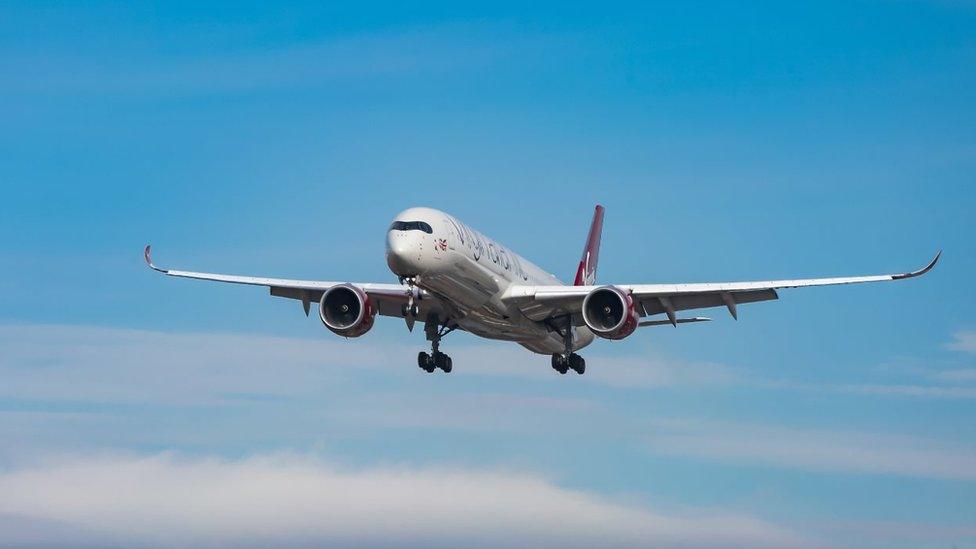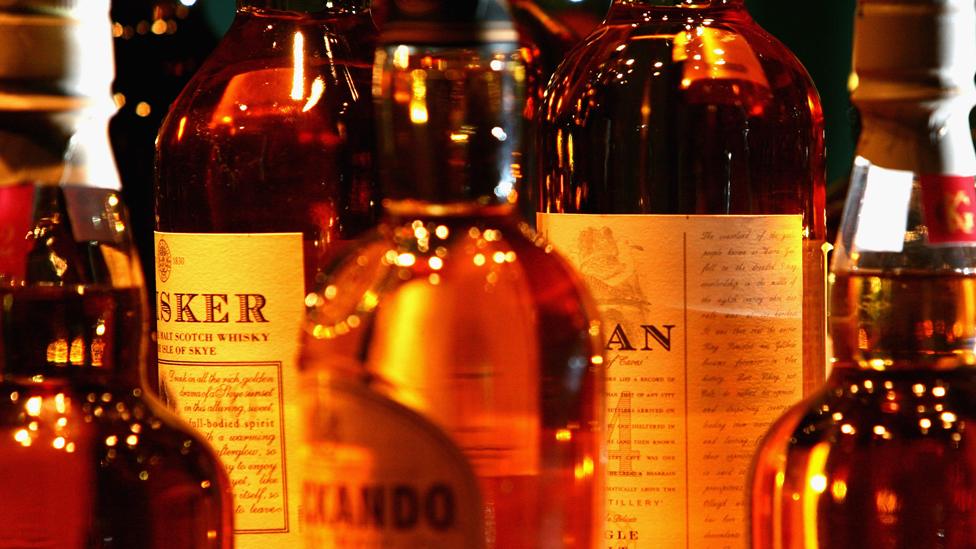Washington increases tariffs on aircraft after EU subsidy row
- Published

The dispute over subsidies to aircraft makers has escalated, with Washington imposing a higher tariff on Airbus and aeroplane parts from the EU.
It will go up from 10% to 15% next month, while most other tariffs on EU exports to America, on a range of goods, standing at 25%, are retained.
The US Trade Representative pulled back on including salmon and blended Scotch.
But the Scotch Whisky Association said it was "deeply disappointed" the tariff will be retained.
It covers single malts and liqueurs from Scotland and Northern Ireland.
While the UK has now left the EU, current rules on trade will continue during the transition period until the start of 2021 while new trading relationships are negotiated.
The distillers' group issued a new estimate that the cost to the industry is likely to be more than £100m in annual exports.
Tariffs will also be retained on cashmere jumpers from Scotland and British "sweet biscuits", of which the biggest export is Scottish shortbread.
Some types of meat and dairy produce from the European Union and UK have also faced tariffs since 15 October, along with books, tools and some shellfish and fruit.
Only two small changes have been made to the list of goods covered by the US tariffs which began in October; kitchen knives from France and Germany have been added, but prune juice has been removed.
The action by the office of the US Trade Representative is targeted mainly at the countries where Airbus is built - primarily the UK, France, Germany and Spain.
The legal statement issued on Friday night in Washington said: "The United States remains open to a negotiated settlement that addresses current and future subsidies to Airbus provided by the EU and certain current and former member states".
It said it had considered putting up the tariff rate as high as 100%, but after receiving 26,000 responses to a consultation begun in mid-December, it decided not to do so.
However, there was a warning in Friday's statement of further escalation by Washington if there is retaliation against the higher aircraft tariff by the European Union, or to pursue EU claims that there are unfair subsidies paid to Boeing in the US.

Karen Betts, chief executive of the Scotch Whisky Association, commented: "We're deeply disappointed that a 25% tariff remains in place on exports of single malt Scotch whisky and liqueurs to the United States.
"This tariff has now been in place for four months and is hitting Scotch whisky producers hard, particularly small distilleries. We've seen a significant drop in exports already, and based on this we believe we could be facing at least £100m in lost exports over a year.
"The EU, US and UK must now redouble their efforts to resolve transatlantic trade disputes quickly, so that Scotch and American whiskies can return to the tariff-free trade from which we have benefitted for more than 20 years. It cannot be right that our industry is continuing to pay the price of trade disputes that have nothing to do with our sector."
The industry group has welcomed comments from Prime Minister Boris Johnson that he intends to use the post-Brexit freedom to manage trade to end the 25% EU tariff on imports of US whiskey, which was introduced as part of a separate trade dispute with the European Union, over steel tariffs.
Paul Everitt, chief executive of aerospace trade body ADS, urged the EU and US authorities to work together to remove the threat of tariffs.
He said: "Low tariffs on aerospace products globally have helped give consumers safe, technology advanced and increasingly fuel efficient aircraft that connect global communities.
"We urge the EU and US authorities to work together to find a mutually beneficial solution that removes the threat of tariffs and sustains competitive markets."